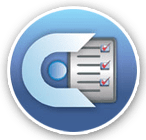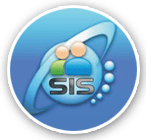It is a software solution that helps educational institutions manage their operations efficiently and effectively.
Here are some key aspects of school ERP software and why it's important for schools:
Administrative Efficiency: School ERP software provides tools for managing various administrative tasks, such as admissions, student records, attendance, staff management, payroll, and accounting. It simplifies these processes, reducing the time and effort required to handle them manually.
Academic Management: It assists in managing academic operations, including curriculum planning, scheduling, exam and grade management, and student progress tracking. This helps educators and administrators monitor and enhance the quality of education.
Communication and Collaboration: School ERP software often includes features like messaging systems, email integration, and online portals that facilitate communication between teachers, students, parents, and staff. This improves overall communication and collaboration within the school community.
Parent Engagement: Many School ERP systems have a parent portal that allows parents to access their child's academic and attendance records, communicate with teachers, and stay informed about school events. This strengthens the relationship between parents and the school.
Data Management: It centralizes data storage and retrieval, making it easier to access and analyze information, which can aid in decision-making and planning. This data-driven approach helps schools identify areas for improvement.
Financial Management: School ERP software helps in managing finances, including budgeting, fee collection, payroll, and expense tracking. It can generate financial reports and help schools maintain financial transparency.
Security and Privacy: These systems often include security features to protect sensitive data, ensuring that student and staff information is kept confidential and safe from unauthorized access.
Reporting and Analytics: School ERP software typically provides tools for generating reports and analytics on various aspects of school operations, helping administrators make data-informed decisions.
Scalability: As educational institutions grow or their needs change, school ERP software can be scaled to accommodate these changes, making it a flexible and adaptable solution.
Compliance and Regulations: School ERP systems can help schools comply with government regulations and reporting requirements, ensuring that they meet legal and academic standards.
In summary, School ERP software plays a crucial role in improving the overall management and efficiency of educational institutions. It streamlines operations, enhances communication, and empowers educators and administrators to make data-driven decisions. It is a valuable tool for modern schools looking to provide a better educational experience for students and ensure smooth administrative processes.







